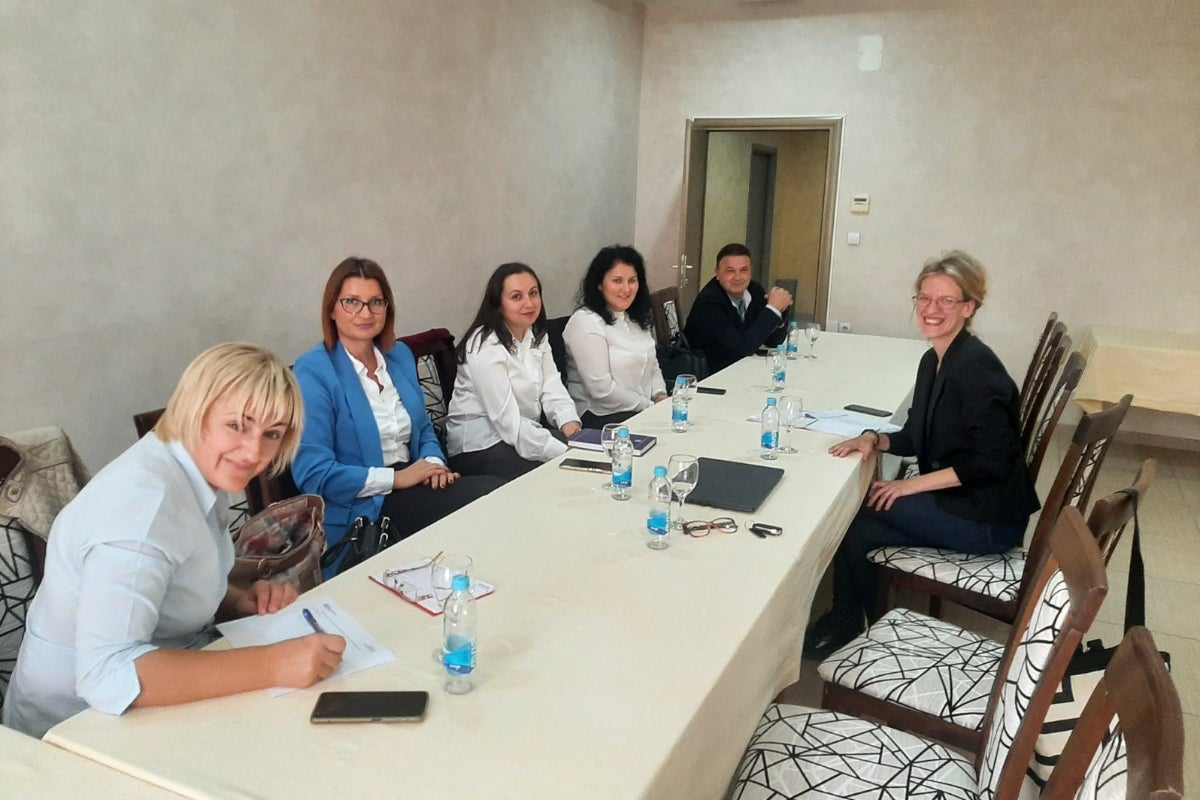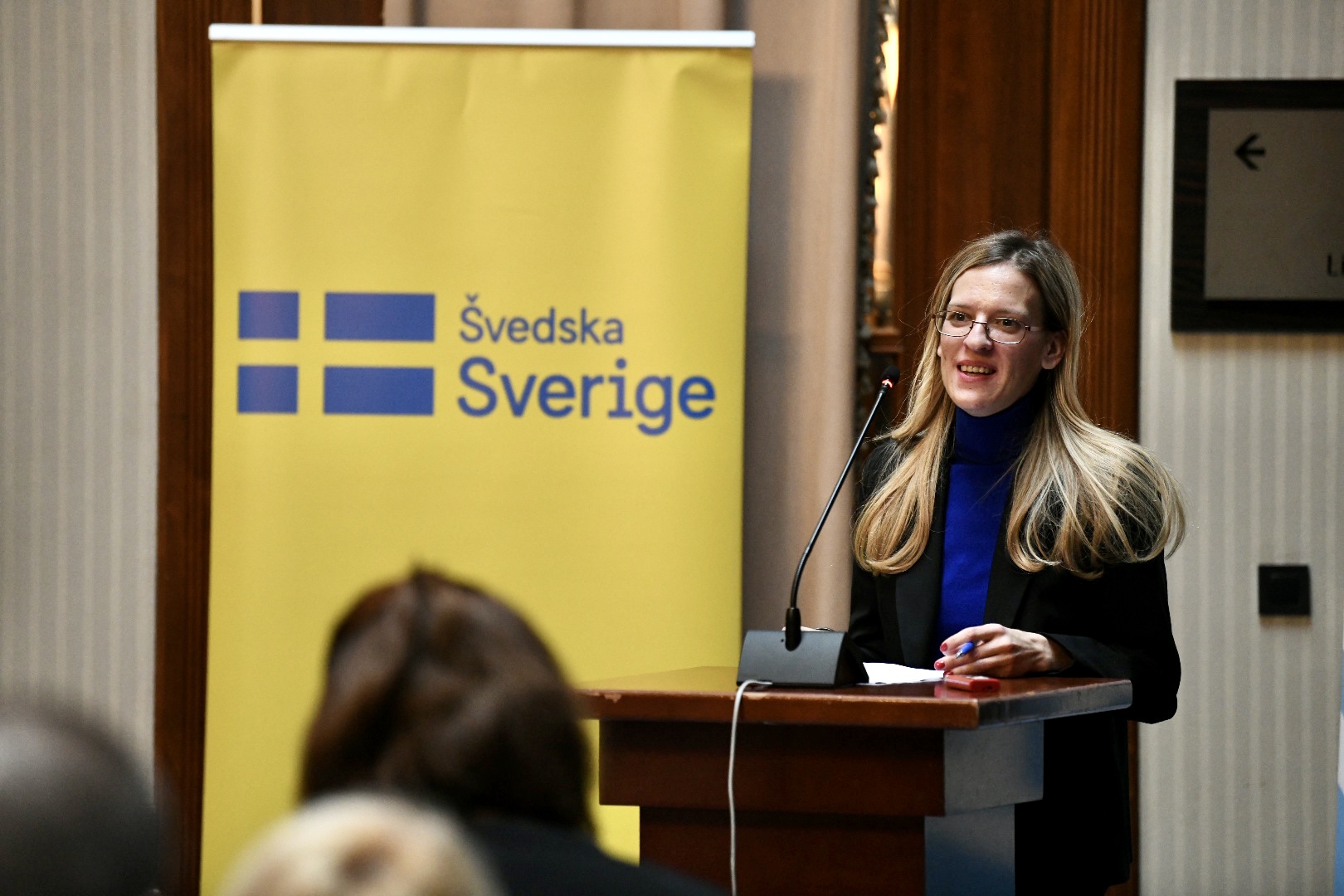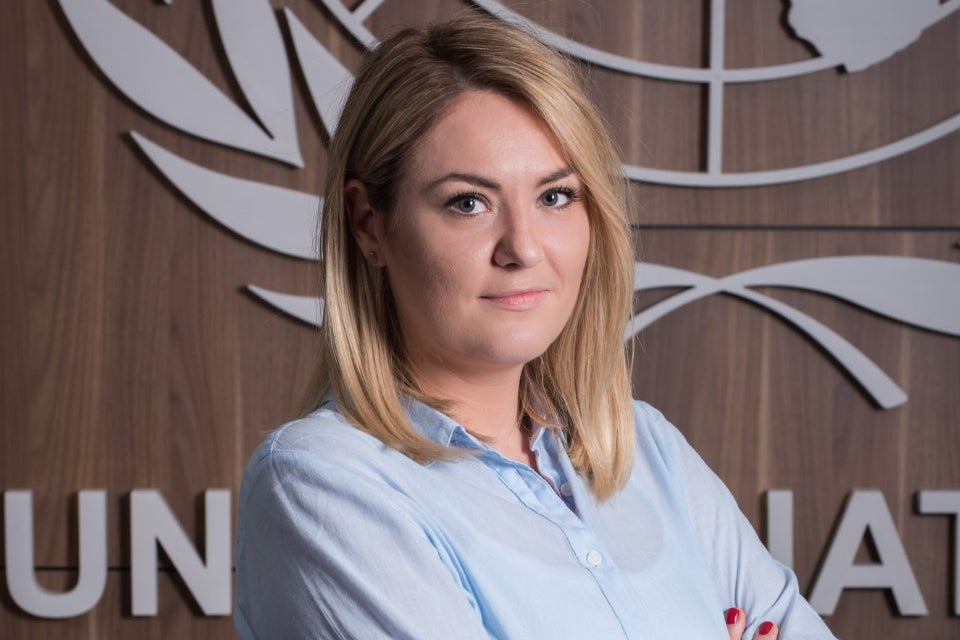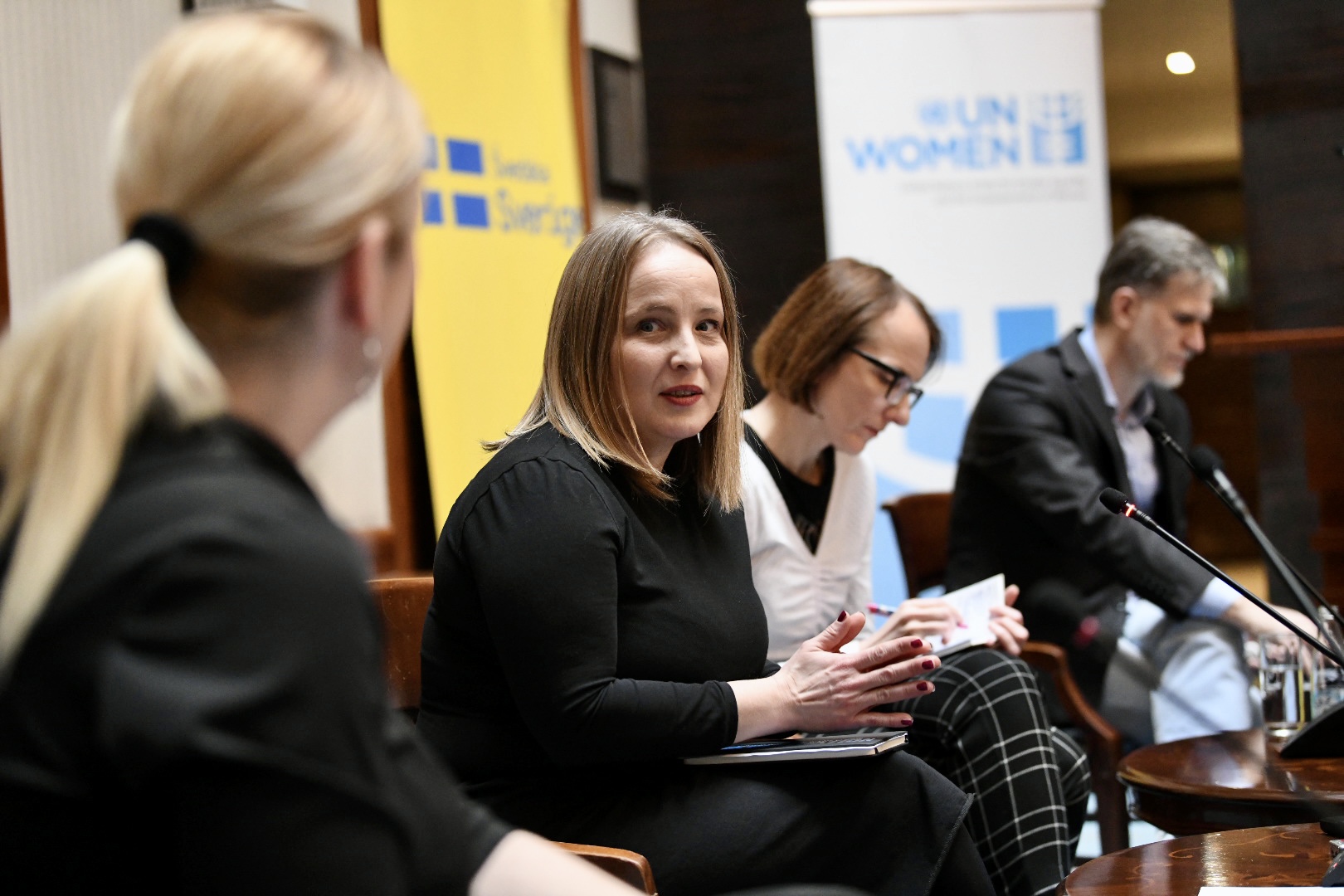Working with journalists to combat violence against women in Bosnia and Herzegovina
Date:

In Bosnia and Herzegovina (BiH), UN Women has been working with media to prevent violence against women since 2016. Undoubtedly, much remains to be done to eradicate problematic and sensationalist reporting on gender-based violence. However, after six years of working with journalists, positive changes can be seen in newsrooms across the country and the quality of reporting has improved.
Since 2016, around 330 journalists and over 80 journalism students from six BiH universities have participated in education programmes on professional reporting on violence against women, implemented by non-governmental organizations supported by UN Women BiH, with funding from Sweden. Today, some of these participants are among the leading journalists covering this topic in BiH.
One of them is Katarina Panić, a journalist from Prijedor, a municipality in Republika Srpska, BiH. She even went a step further to become a permanent member of the multisectoral team for the prevention of domestic and gender-based violence.
“Institutions for the protection of survivors are doing tremendous work, which was completely invisible for 10 years,” says Panić.
She and other team members – including representatives of health, social, educational and police institutions in Prijedor – meet once a month. Her role is to promote their work to the general public and inform citizens about trends and statistics on domestic violence in Prijedor. She writes for a news agency and her articles are republished by other media.
Panić explains that it took six months for her to earn the trust of the other team members, but today everyone recognizes the benefits of this cooperation. “They understand that we can all be of use to each other. They are my sources, and I am there to make them more visible,” she says.
According to Dragana Grujičić, a social worker at the Prijedor Center for Social Work, people associate the police with the use of force, the social work centre with taking children from their parents, and the role of schools as being solely educational.
“These are the most frequent prejudices residents of Prijedor have about institutions that respond to domestic violence. However, when the media report on an issue every month, we see opinions changing in their comments. They now condemn violence too,” says Grujičić.
Prijedor is one of the 18 municipalities in BiH where UN Women has been working together with Mediacentar Sarajevo since 2020 to strengthen cooperation between local media and institutions for the prevention of and protection from domestic violence.
It is a long process, explains Selma Zulić Šiljak, Mediacentar’s project coordinator, with varying success across communities. However, she says it is extremely important because unsensitized media further contribute to the patriarchal mindset and attitudes that violence is a private matter.
“Working on prevention and changing public perceptions and attitudes towards violence requires continuity,” she says. “It cannot simply be a one-off intervention. UN Women has recognized this, and we are grateful to be continuing our cooperation for a third consecutive year.”

To follow trends in gender-based violence reporting, UN Women conducts regular analyses, which suggest change is underway.
“Comparing the first analysis in 2016 to the most recent one in 2020, there is obvious progress in certain aspects of media coverage of gender-based violence,” says Nađa Hasanović, Project Coordinator for UN Women’s programme on preventing violence against women. “Sensationalism is still present; however, the most recent analysis did not find a single case of publishing graphically explicit scenes of violence.”
She says the Handbook on Gender-Responsive Reporting, developed under the programme, remains a permanent resource in newsrooms; journalists are actively engaged in awareness-raising campaigns on violence against women; and there is cooperation with journalism faculties across BiH.
“Today, we have a pool of committed journalists who are passionate about the topic of gender-based violence. We provide them with additional training and empower them through trainings-of- trainers and continued exchange of information. It is important that we now have solid foundations in place, but much remains to be done,” says Hasanović.

Mentoring and media trainings organized across BiH present a rare opportunity for young journalists and editors to learn about responsible reporting.
Marija Arnautović, an experienced journalist and editor who reports on marginalized groups, is a member of the training team. Early in her career, she had no opportunities to attend specialized trainings, which she believes was an impediment to her work. Today, she develops practical training courses that focus on real-life challenges faced by media professionals covering difficult topics, such as violence against women.
“Journalists are not necessarily disinterested in the topic. Sometimes they have simply been taught wrong. Newsrooms will often incorrectly teach them how to cover certain issues and how to perceive them. I believe that people can change,” she says.

According to Zulić Šiljak, professional reporting on gender-based violence can change public perceptions, which makes journalists indispensable allies. While not all journalists will be equally interested, she says that isn’t necessary to spark change.
“If among 20 participating journalists and editors there are five who are truly committed, demonstrate great interest in education, perform well on the analytic test, which is an integral part of every programme, and show institutions that media can do something different, then I believe we will have the elements for sustainability after the project,” says Šiljak.